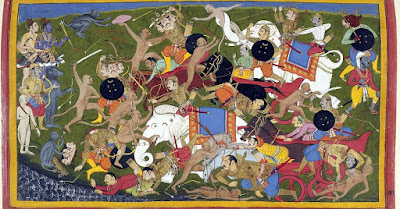IT'S SEPTEMBER ALREADY- BANNED BOOKS WEEK( SEPT 28- OCT 2)
INTRODUCTION
September like every month is full of literary events. To name a few- on the 6th, we celebrated 'Read a Book Day'; Roald Dahl's birthday was on the 13th; Hobbit day was on 22nd, and such others. I wanted to write on all. But I could write only on one due to time crunch.
I selected an event called the Banned Books Week celebrated in the last week of September. But why was the last week of the month singled out? What was the intent behind the celebration? - all these questions and several others cropped up in my mind. Let's take a look at it one by one.
BEFORE THE HISTORICAL BACKGROUND- A NOTE ON BANNING AND CENSORSHIP
"You can't do this! I won't let you." That's how banning sounds like. You don't need to drink gallons of lessons on human psychology to figure out what's banned is the most attractive. The louder the uproar, the more limelight it gets. Freedom like power can be used for the good as well as abused. Drugs are banned in many countries, but such things are best left to human discretion. You can't force people to toe the line. Consequences whether good or bad are attached to every deed.
Our glorious Indian Independence Movement has witnessed the mass protest and backlash to the Vernacular Press Act and such other laws. It was because of such remarkable acts of courage and determination that the Indian Constitution in Article 19(1)(a) has made provision for the freedom of speech and expression. Even John Milton in Areopagitica(1644) defended the right to freedom of speech and expression.
THE HISTORICAL BACKGROUND
Now, it won't be a hard guess that behind every groundbreaking change is an activist. This holds true for this annual celebration of significance too! The Banned Books Week was founded by an American activist Judith Krug in the year 1982. The First Amendment in the US worried the Association of American Publishers after a series of books were banned. It threatened the freedom to publish that often results in the convergence to the readership. The concern was later promoted as an awareness campaign by the American Library Association.
CONCLUSION
Unfair persecution of the individuals who write or circulate materials that don't go down well with the orthodox crowd has seen a bloody history. Take, for example, William Tyndale who was convicted and burnt at the stake in 1536. More recently, 9,500 copies of Operation Dark Heart were burnt!
SEE ALSO


Comments
Post a Comment